30 years ago, the world watched in horror as the Shuttle Challenger exploded on live television 73 seconds after lift-off at the Kennedy Space Center in Cape Canaveral. Among the seven astronauts who died was the first American Arab astronaut, Christa McAuliffe
By Ray Hanania
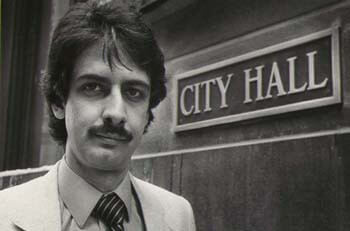
covering Chicago
City Hall
(1976-1992)
I remember standing in the offices of one of my editors at the Chicago Sun-Times, Earl Moses, just before noon on what should have been a typical Tuesday on Jan. 28, 1986.
I was covering Chicago City Hall and politics for the Page 10 column, which 12 months later would be scrapped and I would get to return to City Hall full-time. Moses and I were talking about the Middle East, of course. It wasn’t unusual for reporters to include among their banter their own particular ethnic and religious experiences.
I was the only Palestinian American journalist working at a major American newspaper at the time, and I hadn’t yet gotten into trouble by insisting on writing a series on the Palestinian Intifada in 1990, a topic I later believed was not getting fair media coverage. Moses, ironically, was the editor who compiled the newspaper’s submission for the Pulitzer Prize Committee and liked the series so much he included the series among the newspaper’s nominations.
That day’s discussion was somewhat related. I was telling Moses, a tall veteran journalist with a long, deep drawl who spoke slowly and deliberately, about how one of the astronauts was “American Arab.”
He said he was surprised. How come he hadn’t heard about that sooner?
It wasn’t a big story at the time. Christa McAuliffe sure didn’t sound like an “Arab” name. And back in the 1980s, people didn’t push all Arabs and people from the Middle East into the square peg of being “Muslim” or the controversial topic of Islam.
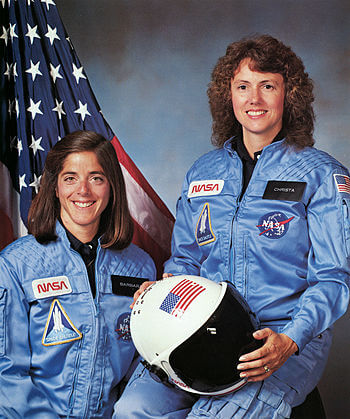
But McAuliffe was part Arab. She was the great niece of one of them, one of the most famous Arab writers second only to Khalil Gibran, Philip K. Hitti.
McAuliffe’s mother was Grace Mary George, whose father was Maronite Catholic from Lebanon. Her name was Sharon Christa Corrigan, but was best known most of her life by friends and family as “Christa.”
Back then, it was a struggle to find any Arabs of prominence in American life so Christa was significant. I think another famous American Arab at the time was Candy Lightner, the founder of MADD, Mothers Against Drunk Driving, who was also part Lebanese American. Five years before, Lightner’s 13 year old daughter was killed by a drunk driver, and a decade later, Lightner became the Executive Director of ADC, the American Arab Anti-Discrimination Committee which championed civil and human rights issues but in recent years has faded into the sunset of activism.
Moses was fascinated by my ramblings about Lightner and McAuliffe. There were very few people in journalism who spent any time at all educating themselves of American Arabs or who knew more about their history and involvement in American life.
I had suggested that maybe the newspaper might consider a feature on McAuliffe’s Arab heritage. One had never been done before in any major American newspaper. A social studies teacher from Concord, New Hampshire, she would become a major icon soon once the shuttle returned from its space adventure.
I was so proud as an American Arab as the Challenger’s rockets ignited on the final countdown on the live television that was just outside of Moses’ newspaper office. I was planning to walk a block away to grab lunch at the Billy Goat where acclaimed former Chicago Sun-Times columnist Mike Royko would always hold court at the bar over a beer and burger — Royko jumped to the Chicago Tribune in 1985 when the Sun-Times was bought by Rupert Murdoch.
Suddenly the broadcast seemed to take on a somber, ominous tone when clouds burst around the shuttle as it ascended into the heavens and eventually into history as one of the great tragedies. You knew something could happen to the space launches but few ever expected anything. It was hard to accept that the shuttle had exploded and that the astronauts had just died in the disintegrating spacecraft parts. It took a few minutes for the horrific reality to settle in. McAuliffe was only 37years old at the time.
That was 30 years ago today (Jan. 28, 2015). It’s so hard to believe so much time has passed. But it is even more difficult as an American Arab to see how little has changed in a positive way for American Arabs.
Arabs in America have been marginalized. We’re no longer “Arab” and are seen by most Americans as “Muslims.” We’re dragged into the fundamental racism many Americans have against Islam and Muslims, even though the majority of American Arabs are Christian, like McAuliffe.
Not that I have ever been embarrassed to be mistaken for a Muslim. I am proud when other Americans come up to me and call me a Muslim. I am only surprised that so many Americans are so uneducated and don’t know that many Arabs are Christian and that being an “Arab” is not about religion but rather it is a cultural and national identity.
I remember right after Sept. 11, 2001 when an American woman came up to me after a speech and said, “I can’t believe you abandoned your Christian faith to become an Arab.” It was shocking enough to push me into standup comedy and launch with friends Comedy for Peace and later The Israeli-Palestinian Comedy Tour.
The McAuliffe story became a part of the explosive news that took place that day and that week. That story became one of the biggest stories of the moment and stayed that way for a long time. The explosion made the aspect of McAuliffe’s heritage less pressing, although eventually it did get out. McAuliffe would have been the first teacher in space, the first civilian in space, which both did attract a lot of public attention, and the first American Arab in space, too.
It’s worth mentioning that McAuliffe’s co-astronaut was Judith Resnik, who was Jewish and also died in the Shuttle disaster. Resnik, a mission specialist, was the first Jewish astronaut in space.
As an American, I am proud of her and her sacrifice for this country. And I am also proud of the many great things that American Arabs have contributed to this country, even if most Americans are fixated on the few who do so much worse.
The five astronauts who died with McAuliffe and Resnik are: Francis R. Scobee, Commander; Michael J. Smith, Pilot; Ronald McNair, Mission Specialist; Ellison Onizuka, Mission Specialist; and Gregory Jarvis, Payload Specialist. McAuliffe was a “Payload Specialist” also.


- Israelisnipers shooting and killing hospital workers in Gaza - December 11, 2023
- CAIR Condemns Israeli Executions of Wounded, Unarmed Palestinian in West Bank - December 11, 2023
- Arab and Muslim American voters face a “simple choice” between Biden’s inhumanity and Trump’s edgy politics - December 9, 2023














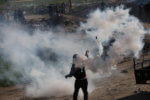

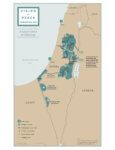
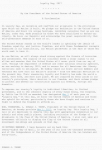
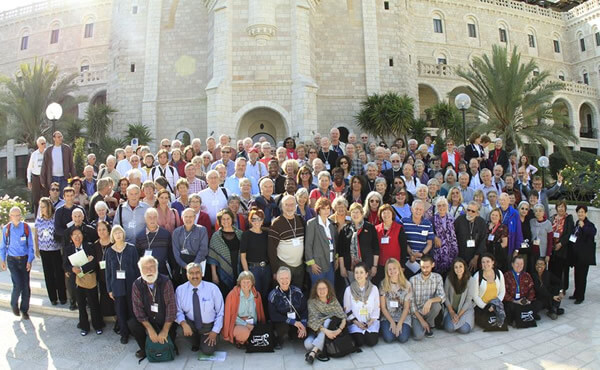




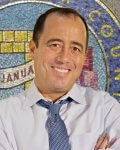

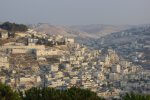
American Arabs should take pause and remember the great sacrifice that Christa McAuliffe made that day 30 years ago when the Shuttle Challenger exploded killing her and six other astronauts. McAuliffe was the first American Arab to travel into space. Ironically, her co-passenger astronaut, Judith Resnik, was the first Jewish American to travel into space, too. It offers a somber perspective on the ugliness of today’s Middle East conflict and may serve to remind us that we both suffer tragedies together and we should work to make this a better world, as McAuliffe and Resnik tried to do. RAY HANANIA